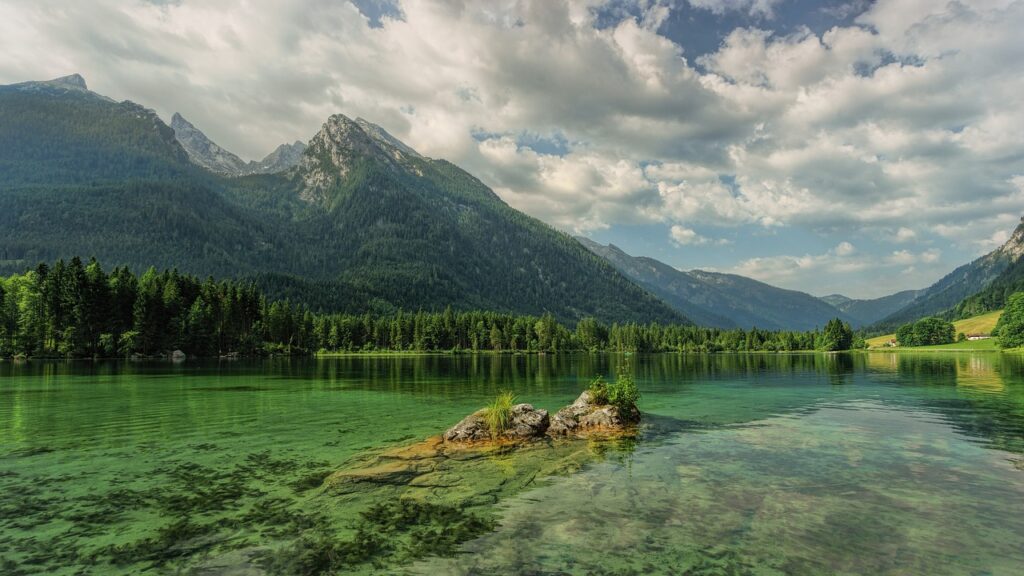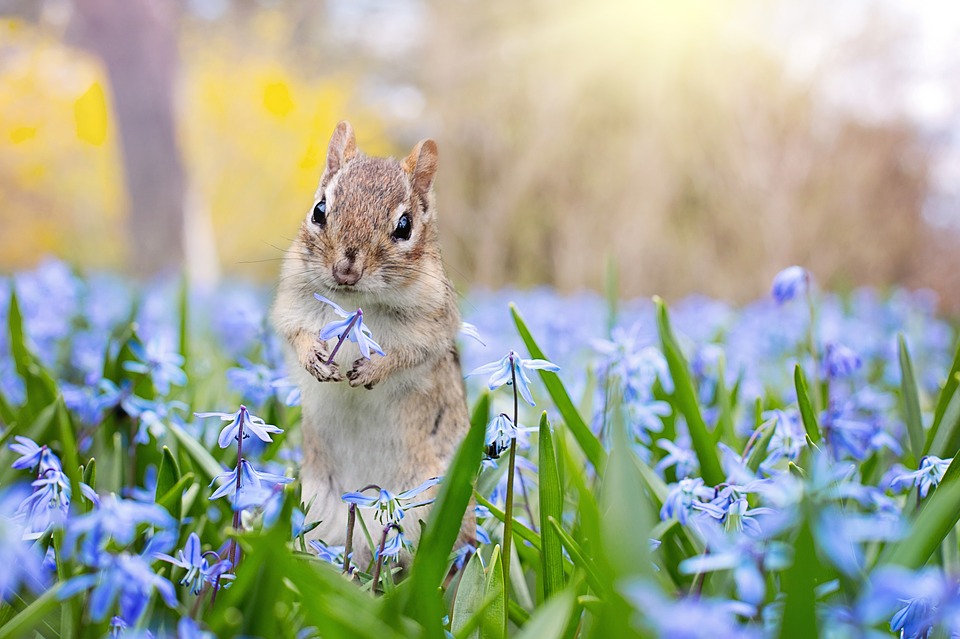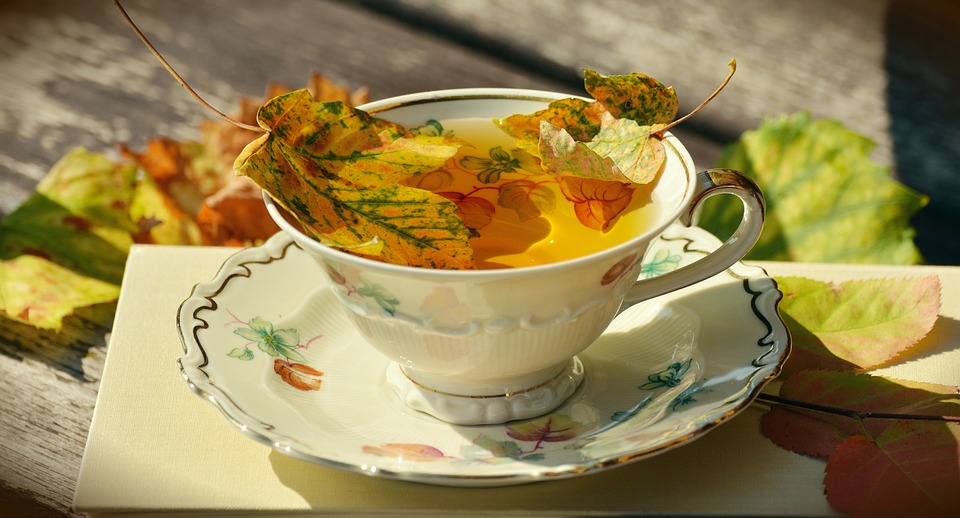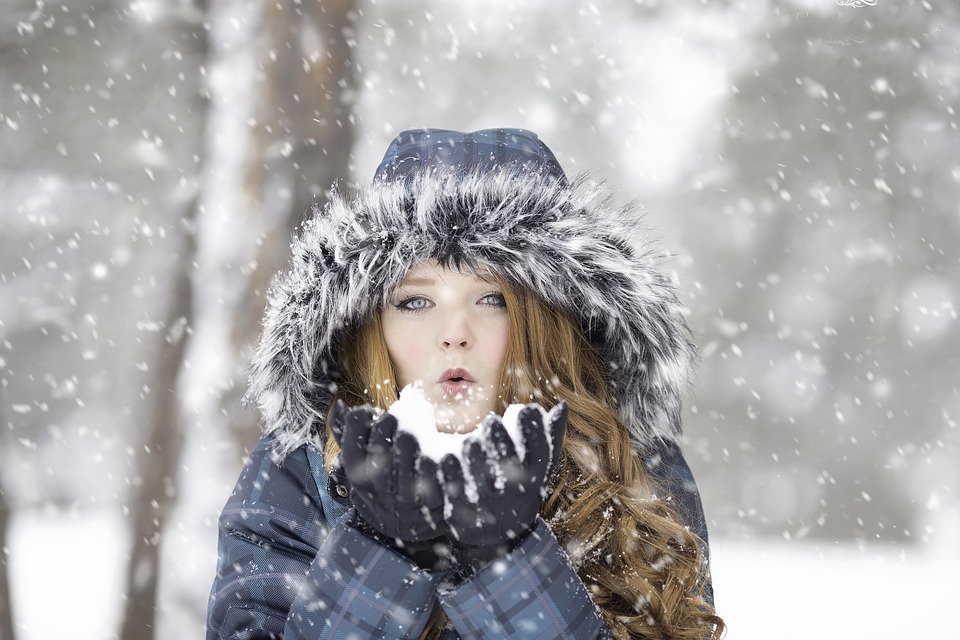
Seasons and Weather in German: The Vocabulary, Culture and Climates You Need to Know
Each year, the seasons come and go, along with the holidays, events and memories associated with them.
While the passage of time can be bittersweet, it also means that there’s always something to celebrate.
Keep reading to learn the seasons in German, as well as seasonal German culture and how you can partake in the celebrations, too.
Let the festivities begin!
Contents
- German Die Jahreszeit Season Vocabulary
- German Wetter (Weather) Vocabulary
- How to Talk About the Weather in German
- Common German Expressions About Weather and Seasons
- And One More Thing...
Download: This blog post is available as a convenient and portable PDF that you can take anywhere. Click here to get a copy. (Download)
German Die Jahreszeit Season Vocabulary
der Frühling (Spring)
German Spring Weather
Temperatures in Germany in the spring favor that middle ground between not-quite-winter and not-warm-enough-to-be-summer. Expect the mercury to stay above freezing most of the time, though.
Anything higher than 70 degrees Fahrenheit/21 degrees Celsius is unusual. Speaking of which, German-speaking countries measure temperature in Celsius, so keep that in mind as you read weather reports.
As for appropriate clothing, you’ll likely want to wear a light jacket while out and about. Layers work, too.
German Spring Celebrations
One of the most popular springtime celebrations—and not just in Germany—is Mardi Gras. Known as Karneval in western Germany, Fasching in Austria and eastern/southern parts of Germany and Fastnacht in select German states and Switzerland, Mardi Gras typically falls in February and lasts until early March.
Ostern or das Osterfest (Easter) draws quite a crowd as well. While that celebration occurs in mid-April, Der Erste Mai or Tag der Arbeit (May Day/Labor Day) happens on May 1.
As is typical for the season, these celebrations focus on new beginnings, a fresh start and a positive outlook.
German Spring Vocabulary
| German | English |
|---|---|
| Das Aufblühen | Blossoming |
| Die Baumblüten | Tree blossoms |
| Die blühenden Blumen | Blooming flowers |
| Die Blumen | The flowers |
| Die Frühlingsgefühle | Spring fever |
| Die Frühlingsluft | Spring air |
| Der Frühjahrsputz | Spring cleaning |
| Das Frühlingsfest | Spring festival |
| Das grüne Gras | Green grass |
| Die Gartenarbeit | Gardening |
| Die Regenschauer | Rain showers |
| Das Picknick im Freien | Outdoor picnic |
| Der Neuanfang | New beginning |
| Die Schmetterlinge | Butterflies |
| Der Sonnenschein | Sunshine |
| Die Wärme | Warmth |
| Das Vogelgezwitscher | Birdsong |
der Sommer (Summer)
German Summer Weather
Summer in Germany is generally warm and pleasant. Average temperatures range from 20 to 30 degrees Celsius (68 to 86 degrees Fahrenheit) during the daytime.
You can expect a humid heat in the German summer. Rain still falls, even though the chilly breeze of spring has given way to warm summer nights.
Keep in mind that weather can vary, so it’s a good idea to pack both light clothing and a few layers, just in case!
German Summer Celebrations
Cities like Berlin, Munich and Hamburg come alive with outdoor events, street festivals and open-air markets in the summer.
Traditional music festivals, called die Musiktage , fill up June, July and August Das Bachfest (the Bach Festival) is a popular event to attend in June.
Beer is the perfect summer drink, and the International Berlin Beer Festival lands smack dab in the middle of one of the hottest months of the year—August.
May through September is typically considered die Reisezeit (the travel season). Conditions are optimal for seeing the countryside, drinking beer, reveling in enormous tents and trekking over cobblestone roads in the heart of Germany.
German Summer Vocabulary
| German | English |
|---|---|
| Das Bräunen | Tanning |
| Die Eiscreme | Ice cream |
| Die Ferien | Holidays |
| Das Freibad | Outdoor swimming pool |
| Das Grillen | Barbecuing |
| Die Hitze< | Heat |
| Die Meeresbrise | Sea breeze |
| Das Meer | Sea |
| Die Outdoor-Aktivitäten | Outdoor activities |
| Das Reisen | Traveling |
| Der Sand | Sand |
| Das Schwimmen | Swimming |
| Die Sommerkleidung | Summer clothing |
| Die Sonnenbrille | Sunglasses |
| Der Sonnenhut | Sun hat |
| Die Sonne | Sun |
| Der Sonnenschein | Sunshine |
| Der Strand | Beach |
| Das Strandtuch | Beach towel |
| Der Urlaub | Vacation |
| Die Wassersportarten | Water sports |
der Herbst (Fall)
German Fall Weather
Before indulging in the foamy mugs of this joyous occasion, take notes on traveling to Germany in the fall. As the opposite of spring, temperatures in fall drop down from balmy temperatures to colder weather.
Autumn in Germany brings cooler temperatures and the landscapes transform into a stunning array of red, orange and yellow hues as the leaves change color. Average temperatures range from 10 to 15 degrees Celsius (50 to 59 degrees Fahrenheit), making it a comfortable season for exploring.
German Fall Celebrations
If they don’t make it to Germany in the summer, many people will pack their bags for one of the most well-known German celebrations in late fall.
You guessed it: Das Oktoberfest .
Much more than a giant drinking celebration—though that’s what it’s mostly known for—Oktoberfest rejoices in all that is German. Or, more specifically, all things Bavarian (the large, southernmost region of Germany)—including traditional outfits ( die Lederhosen for the men and die Dirndl for the women) and the timeless desire to come together and enjoy each other’s company.
Like Oktoberfest, which runs through September into the first week of October, Das Stadtfest , or “the city festival,” happens in the month of September as well. Each city puts on its own set of festivities, including live music, street performers and more. It’s a way to showcase the residents of the city, highlighting their skills and accomplishments with pride.
Specific to Germany, Tag der Deutschen Einheit (German Unity Day), is extremely important as well. On October 3, 1990, East and West Germany reunited ( die Wiedervereinigung ), adding an important German holiday to this day.
German Fall Vocabulary
| German | English |
|---|---|
| Die Apfelernte | Apple picking |
| Das Erntedankfest | Harvest festival |
| Das Erntedankfest | Thanksgiving |
| Die Blätter | Leaves |
| Der Blätterhaufen | Leaf pile |
| Das Drachensteigen | Kite flying |
| Die Erntezeit | Harvest time |
| Das Halloween | Halloween |
| Der Herbstspaziergang | Fall walk |
| Der Herbststurm | Fall storm |
| Der heiße Kakao / die heiße Schokolade | Hot chocolate |
| Die Jacke | Jacket |
| Der Kastanien | Chestnuts |
| Der Kürbis | Pumpkin |
| Der Laternenumzug | Lantern parade |
| Das Laub | Foliage |
| Der Nebel | Fog |
| Der Regen | Rain |
| Die Stiefel | Boots |
| Der Tee | Tea |
| Das Pilzesammeln | Mushroom hunting |
der Winter (Winter)
German Winter Weather
When people think of Germany in the winter, they might think of skiing in the Alps. But even though there’s plenty of powder in die Alpen , German winters aren’t actually too bad.
Just as rain falls frequently in the summer, Germans plan for much snowfall in the winter. The humidity, though, keeps temperatures above 20 degrees Fahrenheit/-6 degrees Celsius.
Since snow falls quite often in the winter months, Germans tend to spend more time indoors with family and friends. In fact, it’s a great time for parties and gatherings.
German Winter Celebrations
Germans celebrate Christmas on the same day many Americans do, but not always in the same fashion. Before Kris Kringle—or, der Weihnachtsmann —visits, Germans celebrate Nikolaustag (St. Nicholas Day) on December 6th.
St. Nicholas isn’t Santa Claus, but he does leave treats in the shoes of young children—if they’ve been good. Like the advent calendars sold in many global markets, St. Nicholas is there to remind children to be on their best behavior.
And in the spirit of beginning again and ringing in the new year, Germans celebrate Silvester (New Year’s Eve) on the last day of the year.
German Winter Vocabulary
| German | English |
|---|---|
| Das Eis | Ice |
| Das Eislaufen / Schlittschuhlaufen | Ice skating |
| Der Glühwein | Mulled wine |
| Die Geschenke | The presents |
| Die Handschuhe | The gloves |
| Die Kälte | Cold |
| Der Kamin | Fireplace |
| Der Schneemann | Snowman |
| Die Schneeballschlacht | Snowball fight |
| Der Schal | Scarf |
| Der Schnee | Snow |
| Das Skifahren | Skiing |
| Das Snowboarden | Snowboarding |
| Die Mütze | Hat |
| Der Neujahrstag | New Year's Day |
| Schlitten fahren gehen | To go sledding |
| Die Schneeflocken | Snowflakes |
| Das Weihnachten | Christmas |
| Die Weihnachtsbeleuchtung | Christmas lights |
| Der Weihnachtsmarkt | Christmas market |
| Der Wintermantel | The winter coat |
| Die Winterferien | Winter holidays |
| Die Winterlandschaft | Winter landscape |
| Der Winterschlaf | Hibernation |
German Wetter (Weather) Vocabulary
As you saw from the previous sections, Germany has a diverse climate. Whether you’re conversing about the sunny summers or the picturesque autumn landscapes, mastering these German weather vocabulary will help you navigate weather discussions with ease.
Weather Conditions
| German | English |
|---|---|
| Bewölkt | Cloudy |
| Dunstig | Hazy |
| Eiskalt | Freezing cold |
| Die Eiskristalle | Ice crystals |
| Feucht | Humid |
| Die glühende Hitze | Blazing heat |
| Das Glatteis | Black ice |
| stürmisch | Stormy |
| Die Graupel | Sleet |
| Der Hagel | Hail |
| Die Hagelschauer | Hail showers |
| Heiter | Fair |
| Klar | Clear |
| Die Luftfeuchtigkeit | Humidity |
| Mild | Mild |
| Der mäßiger Regen | Moderate rain |
| Nebelig | Foggy |
| Der Niederschlag | Precipitation |
| Der Nieselregen | Drizzle |
| Die Polarluft | Polar air |
| Der Regenbogen | Rainbow |
| Regnerisch | Rainy |
| Die Schauer | Showers |
| Verschneit | Snowy |
| Sonnig | Sunny |
| Strahlend | Radiant |
| Taufeucht | Dewy |
| Trocken | Dry |
| Die Tropenluft | Tropical air |
| Die vereinzelten Gewitter | Isolated thunderstorms |
| Der vereinzelte Schneefall | Isolated snowfall |
| Eisig | Icy |
| Windig | Windy |
| Windstille | Calm |
| Der Wolkenbruch | Downpour |
Temperature
| German | English |
|---|---|
| Angenehm | Pleasant |
| Bitterkalt | Bitterly cold |
| Eiskalt | Freezing cold |
| Frostig | Frosty |
| Frisch | Cool |
| Die frische Luft | Fresh air |
| Frösteln | Shivering |
| Gemäßigt | Moderate |
| Der Grad Celsius | Degree Celsius |
| Glühend | Scorching |
| Die Hitzewelle | Heatwave |
| Kalt | Cold |
| Die kühle Brise | Cool breeze |
| Kühl | Chilly |
| Lauwarm | Lukewarm |
| Mäßig warm | Moderately warm |
| Die niedrigen Temperaturen | Low temperatures |
| Die Polarkälte | Polar cold |
| Raumtemperatur | Room temperature |
| Das Schwitzen | Sweating |
| Die schwüle Hitze | Humid heat |
| Schweißtreibend | Sweat-inducing |
| Der Temperaturabfall | Temperature drop |
| Der Temperaturanstieg | Temperature rise |
| Das Thermometer | Thermometer |
| Die Minustemperaturen | Freezing temperatures |
| Tropisch | Tropical |
| Wohltuend | Refreshing |
| Warm | Warm |
Weather Verbs
| German | English |
|---|---|
| Abkühlen | To cool down |
| Abtrocknen | To dry off |
| Aufheizen | To heat up |
| Aufklaren | To clear up |
| Sich Auflockern | To become less cloudy |
| Sich bewölken | To become cloudy |
| Blitzen | To lightning |
| Donnern | To thunder |
| Eintrüben | To become overcast |
| Fluten | To flood |
| Gefrieren | To freeze |
| Glänzen | To shine |
| Hageln | To hail |
| Nieseln | To drizzle |
| Regnen | To rain |
| Schmelzen | To melt |
| Schneien | To snow |
| Schütten | To pour |
| Stürmen | To storm |
| Tauen | To thaw |
| Tröpfeln | To drizzle |
| Verdunkeln | To darken |
| Vorhersagen | To forecast |
How to Talk About the Weather in German
Small talk about the weather is a common and culturally accepted topic of conversation in Germany, much like in many other parts of the world. It serves as an icebreaker and a way to initiate conversations, especially in social settings or when interacting with acquaintances.
You can use these phrases to talk about the weather in German:
- Gibt es eine Chance auf Regen? (Is there a chance of rain?)
- Gibt es eine Kaltfront im Anmarsch? (Is there a cold front coming?)
- Ist es heute windig? (Is it windy today?)
- Ist es heute sonnig? (Is it sunny today?)
- Kann ich heute draußen etwas unternehmen? (Can I do something outside today?)
- Regnet es heute? (Is it raining today?)
- Schneit es gerade? (Is it snowing right now?)
- Sollte ich einen Regenschirm mitnehmen? (Should I take an umbrella?)
- Wird es Gewitter geben? (Will there be thunderstorms?)
- Wird es kalt werden? (Will it get cold?)
- Wird es morgen schneien? (Will it snow tomorrow?)
- Wird es sonnig bleiben? (Will it stay sunny?)
- Wie ist die Luftfeuchtigkeit? (What’s the humidity like?)
- Wie ist die Wettervorhersage? (What’s the forecast?)
- Wie ist die Wettervorhersage für die nächsten Tage? (What’s the forecast for the next few days?)
- Wie ist das Wetter? (How’s the weather?)
- Wie ist das Wetter heute? (What’s the weather like today?)
- Wie wird das Wetter am Wochenende? (What’s the weather going to be like at the weekend?)
- Wie wird das Wetter morgen sein? (What will the weather be like tomorrow?)
If you want to discover even more ways to talk about the weather in German, I recommend using authentic resources. For instance, you could listen to actual German speakers talk about the weather in your neighborhood. Or, if you don’t have that opportunity to hear live German, an immersion program like FluentU offers chances to hear real German from the comfort of your home.
FluentU takes authentic videos—like music videos, movie trailers, news and inspiring talks—and turns them into personalized language learning lessons.
You can try FluentU for free for 2 weeks. Check out the website or download the iOS app or Android app.
P.S. Click here to take advantage of our current sale! (Expires at the end of this month.)
Common German Expressions About Weather and Seasons
The popular weather and seasonal expressions below are a great way to add a touch of nature’s beauty to your conversations… while practicing your German weather and season vocabulary!
- April, April, der macht, was er will. (April, April, it does what it wants.) Referring to unpredictable weather changes in April.
- Im Bett ist immer gutes Wetter! (There’s always good weather in bed!) If you can’t stand the rain, just stay in bed!
- Wir lassen dich nicht im Regen stehen! (We won’t leave you standing in the rain!) Used to reassure someone that you won’t leave them high and dry, or in this case, cold and wet.
- Wenn Hunde Gras fressen, gibt es Regen. (When dogs eat grass, there will be rain.) A folkloric belief about predicting rain based on dog behavior.
No matter where you live or what season it currently is, you can always celebrate your environment—and now you know more about how Germans do that, too!
And One More Thing...
Want to know the key to learning German effectively?
It's using the right content and tools, like FluentU has to offer! Browse hundreds of videos, take endless quizzes and master the German language faster than you've ever imagine!
Watching a fun video, but having trouble understanding it? FluentU brings native videos within reach with interactive subtitles.
You can tap on any word to look it up instantly. Every definition has examples that have been written to help you understand how the word is used. If you see an interesting word you don't know, you can add it to a vocabulary list.
And FluentU isn't just for watching videos. It's a complete platform for learning. It's designed to effectively teach you all the vocabulary from any video. Swipe left or right to see more examples of the word you're on.
The best part is that FluentU keeps track of the vocabulary that you're learning, and gives you extra practice with difficult words. It'll even remind you when it’s time to review what you’ve learned.
Start using the FluentU website on your computer or tablet or, better yet, download the FluentU app from the iTunes or Google Play store. Click here to take advantage of our current sale! (Expires at the end of this month.)











